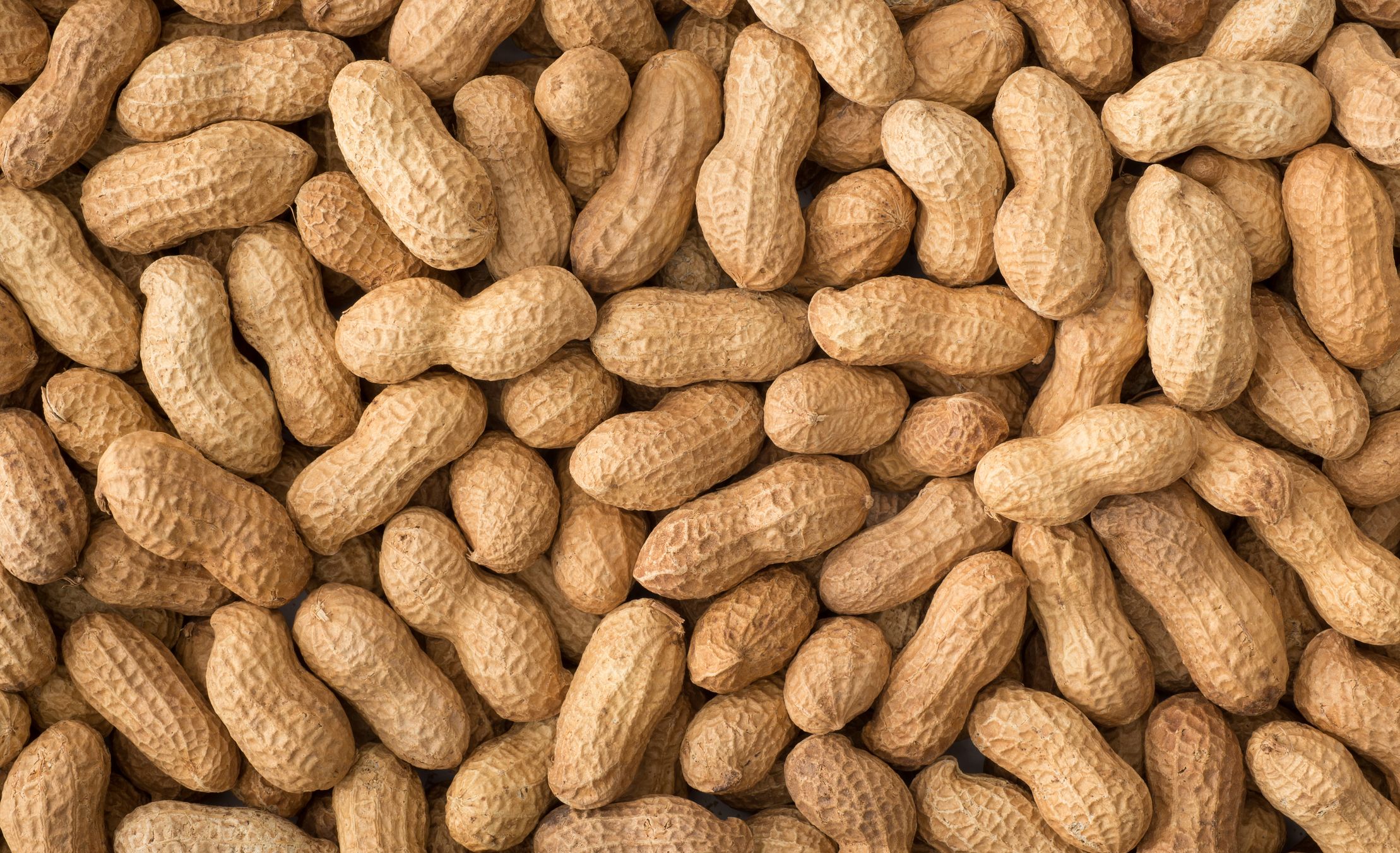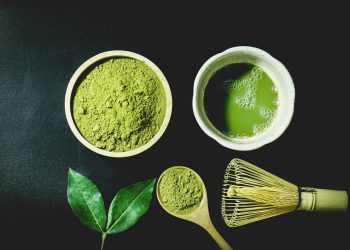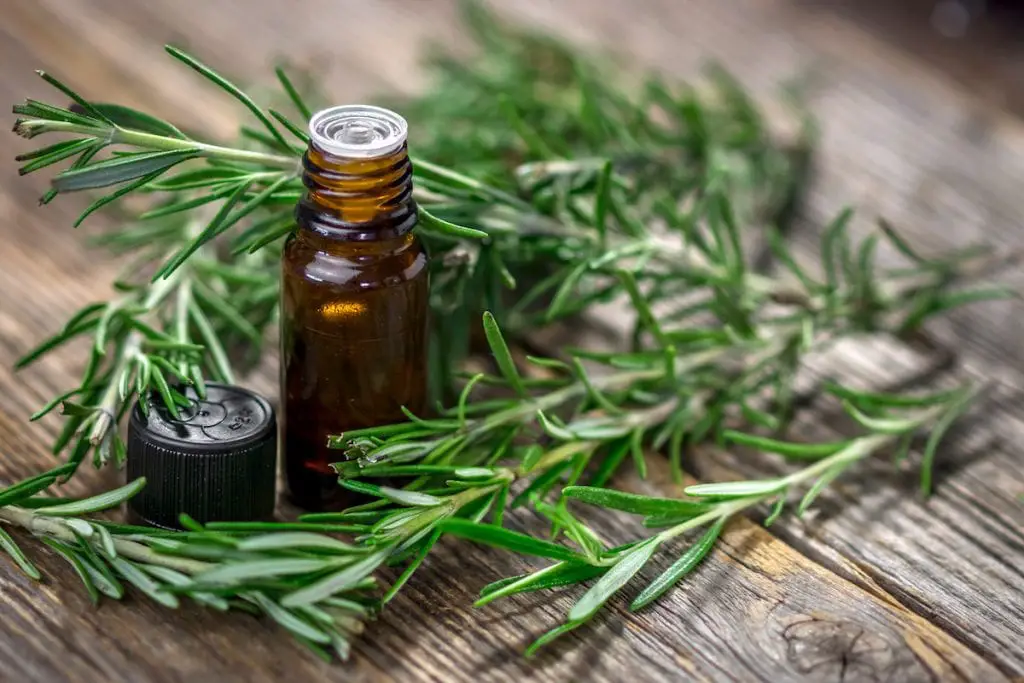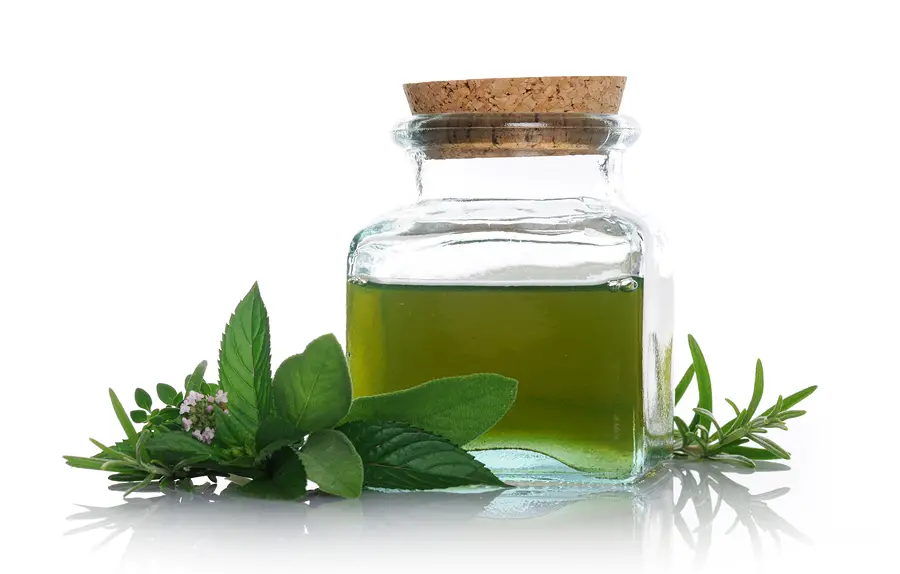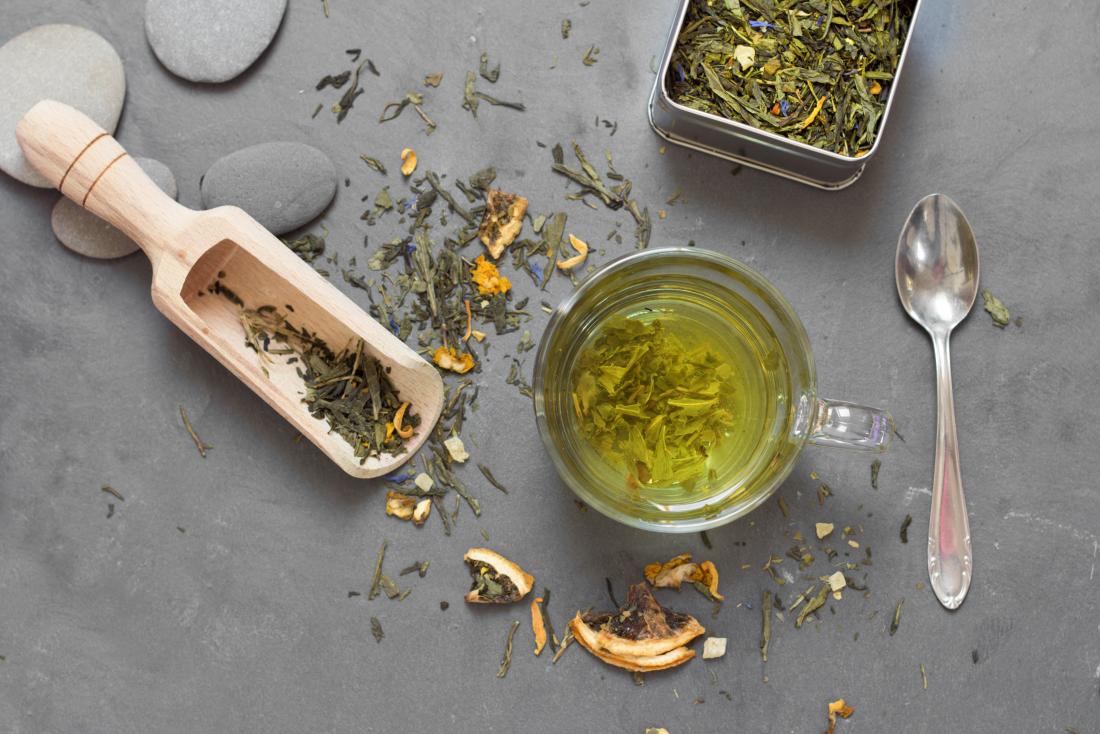Peanuts are packed with essential nutrients that can promote overall health and wellness.
These small legumes that are believed to have originated in Central America can boost heart health, prevent cancer, improve mental performance, and so on.
This article reviews some research backed health benefits of peanuts, its key nutrient facts, and disadvantages of eating too many peanuts.
Health Benefits of Peanuts- Based on Evidence
1. Peanuts May Boost Cardiovascular Health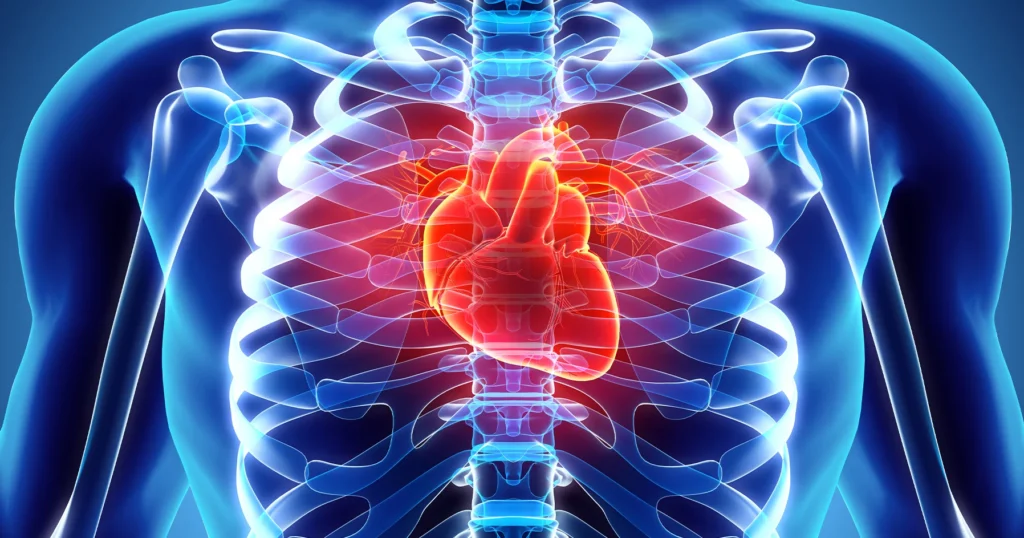
Did you know that eating peanuts is good for your heart?
Clinical trials have proven that the link between peanut consumption and lower risk of coronary heart disease is not a myth [1, 2, 3, 4].
A 2008 study reports that peanuts can actually reduce risk of coronary heart disease by up to 35 percent [1].
Peanuts have been found to lower risk factors for heart disease such as inflammation, oxidation and vascular reactivity [1].
This can be attributed o their healthy fatty acids as well as other potent nutrients and bioactive compounds [1].
Some of these inlude potassium, magnesium, calcium, tocopherols, phytochemicals, phenolic compounds, arginine and resveratrol [1].
Key Takeaways:
- Peanuts have been found to lower heart disease risk by reducing inflammation, oxidation and vascular reactivity.
- These mechanisms can be attributed to the healthy fatty acids, nutrients and bioactive compounds in peanuts.
2. Peanuts May Reduce Risk of Stroke
According to the Medical News Daily, stroke is the fourth leading cause of mortality in the United States, killing 800,000 people each year.
Stroke.org explains that this condition occurs when the blood flow to the brain is disrupted.
When this happens, many of the processes going on inside the body can instantly shut down.
Some of the most common risk factors of stroke include heart disease, smoking, diabetes, high blood pressure, brain aneurysm, obesity, and the use of oral contraceptives.
To reduce the risk of stroke, it helps to make the necessary lifestyle changes—quit smoking, eat a healthy diet, and maintain regular physical workout.
It also helps to consume healthy foods like eanuts.
A 2005 Australian study found that eating peanuts and whole grains can significantly protect against stroke and heart disease [5].
It’s not clear how peanuts and other hole grain food products can ward off stroke and heart disease, but experts believe that fiber, magnesium, B vitamins, and vitamin E play an important role in this matter [5].
These are believed to have positive effects on blood pressure and cholesterol levels [5].
Key Takeaways:
- Eating a healthy diet that’s low in fat and cholesterol can significantly reduce risk of stroke and heart disease.
- Peanuts, which are abundant in fiber, magnesium, B vitamins and vitamin E, can help prevent stroke with its beneficial effects on cholesterol and blood pressure.
3. Antioxidants in Peanuts Can Help Prevent Colorectal Cancer
Almost 150,000 Americans are diagnosed with colorectal cancer each year, reports WebMD.
This form of cancer is charaterized by abnormal cell growth in the colon or rectum, which can spread to other parts of the body, according to Wikipedia.
A study published in the WorldJournal of Gastroenterology reveals that regular intake of peanuts can lower risk of colorectal cancer among women [6].
Researchers discover that the atioxidants in peanuts have “anti-carcinogenic effect on colon cancer risk” [6].
Key Takeaways:
- Colorectal cancer occurs when there’s uncontrollable growth in the cells in the rectum.
- Regular consumption of peanuts have been found to be effective in reducing the risk of this form of cancer among women.
- The antioxidants in peanuts produce significant anti-cancer effects.
RELATED: 12 Essential Oils for Cancer That You Should Know (Backed by Evidence)
4. Peanuts May Ward Off Alzheimer’s Disease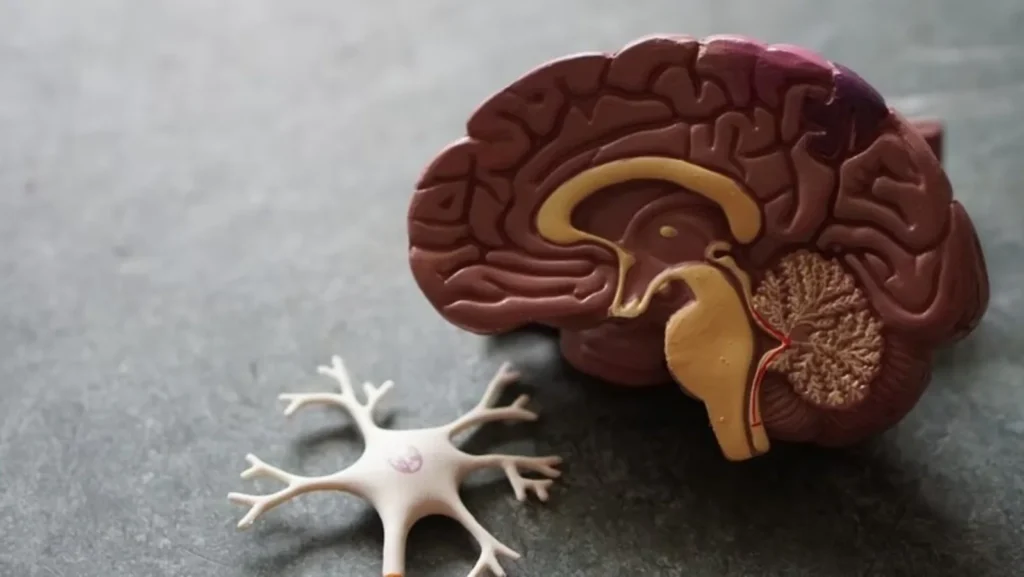
Alzheimer’s disease is a condition affecting the brain that causes memory loss, and difficulty in solving problems, thinking logically, and performing mundane tasks.
This occurs when proteins accumulate in the brain, forming structures that are referred to as tangles or plaques.
These structures hinder the connection between the nerve cells, destroying cells and brain tissues.
Since it is a progressive disease, the brain gradually degenerates over time.
Emerging studies associate resveratrol with the delay or prevention of Alzheimer’s disease [7, 8, 9].
What resveratrol does is that it reduces oxidative stress and at the same time, decreases plaque formation in the brain [9].
It also protects the neurons against toxicity, which in turn slows down their breakdown and degeneration [7].
Did you know that thi antioxidant is not only present in red wine but also in a handful of peanuts?
Key Takeaways:
- Resveratrol, a type of antioxidant found in red wine, has been linked to many positive health effects including prevention of Alzheimer’s disease.
- It works by reducing the formation of plaque in the brain, and protecting neurons from toxicity.
5. Peanuts Can Protect Against Free Radical Damage
Do you know how free radicals harm the body?
Free radicals refer to the toxic by-products of oxidation.
These can cause great damage in the cells and tissues of the body through a process known as oxidative stress.
Unhealthy diet, smoking, stress, alcohol and pollution are some of the factors that are said to cause free radical formation in the body.
It’s a good thing free radical damage can be neutralized with antioxidants.
Much has been said about the protective effects of antioxidants found in food sources such as peanuts.
In a study conducted in 2008, it was shown that phenolics and flavonoids exhibited high antioxidative activities that are beneficial to people’s health [10].
Many experts believe that excessive free radicals in the body can increase the risk of many serious ailments including diabetes, hypertension, Parkinson’s disease, arthritis, heart disease and cancer, among others [11].
Eating peanuts rich in antioxidants can therefore help in curbing free radical damage and prevent the mentioned health problems.
Key Takeaways:
- Free radicals are by-products of oxidation that can shoot up the risk of many health problems including heart disease, diabetes, cancer, and arthritis, among others.
- The damage that they cause on the body’s cells and tissues can be reduced with the use of antioxidants.
- Food sources like peanuts are rich in antioxidants that can help in this matter.
6. Peanuts Can Prevent Gallbladder Disease
Gallbladder disease is a common cause of death in developed countries [12].
This small sac that can be found behind the liver is where bile is stored after it is secreted by the liver, and before it is brought into the intestine.
Gallstones, excessive consumption of alcohol, and certain types of infection can cause bile to accumulate in the gallbladder and cause problems.
In 2004, a team of researchers discovered that frequent peanut consumption resulted in a dramatic drop in the risk of gallbladder disease among the men who participated in the study [13].
Another study, meanwhile, found that women who ate peanuts often had fewer cases of cholecystectomy, a surgical procedure of removing infected gallbladder to prevent complications [12].
Both studies indicate that peanuts are packed with active compounds that demonstrate protective effects on the gallbladder [12, 13].
Key Takeaway:
- Active compounds in peanuts can sufficiently protect the gallbladder, prevent formation of gallstones, and reduce the risk of gallbladder disease.
RELATED: 10 Home Remedies for Gallbladder Pain (& How to Use Them)
7. Peanuts Can Help Manage Type 2 Diabetes
Several studies have shown that peanuts are beneficial to people suffering from type 2 diabetes [14, 15, 16].
Type 2 diabetes is a metabolic disorder characterized by the body’s inability to produce or use insulin, a hormone responsible for regulating blood sugar levels.
A series of controlled trials involving diabetic patients verified the positive effects of peanuts on the blood lipids and blood sugar levels [14].
It was also noted in a 2008 study that the blood sugar lowering effects of peanuts were also effective among non-diabetic patients [14].
These nuts contain healthy unsaturated fats that maintain proper regulation of insulin and blood sugar level [16].
On top of these, peanuts have been found to boost the secretion of the satiety hormone, which reduces the person’s desire to eat [15].
Key Takeaways:
- Coping with diabetes can be easier if you consume peanuts that are rich in unsaturated fats that can help regulate glucose and insulin.
- It can also give the feeling of fullness by boosting the release of the satiety hormone.
RELATED: 15 Real Home Remedies for Diabetes (That’ll Actually Work )
8. Peanuts Can Maintain Proper Levels of Cholesterol
Many people think that peanuts can shoot up cholesterol levels.
Scientific evidence indicates otherwise.
In 2007, a group of Turkish esearchers reported that eating peanuts actually increased good cholesterol and reduced bad cholesterol in the bloodstream [17].
A diet high in monounsaturated fats—such as what you’ll find in peanuts—can lower bad cholesterol by up to 14 percent [18].
Maintaining proper levels of holesterol is more important than many people realize.
Having high cholesterol in the bloodstream can shoot up the risk of stroke and heart disease.
When there’s too much cholesterolin the blood, fatty deposits called plaques will form in the arterial walls.
Plaque formation can lead to a blood clot, which in turn, could trigger a heart attack.
Key Takeaways:
- Studies have debunked the myth that peanuts can cause cholesterol levels to go up.
- Peanuts have been found to be capable of lowering levels of cholesterol, and preventing blood clot in the arterial walls, which is a precursor to heart attack.
9. Peanuts Can Reduce Risk of Stomach Cancer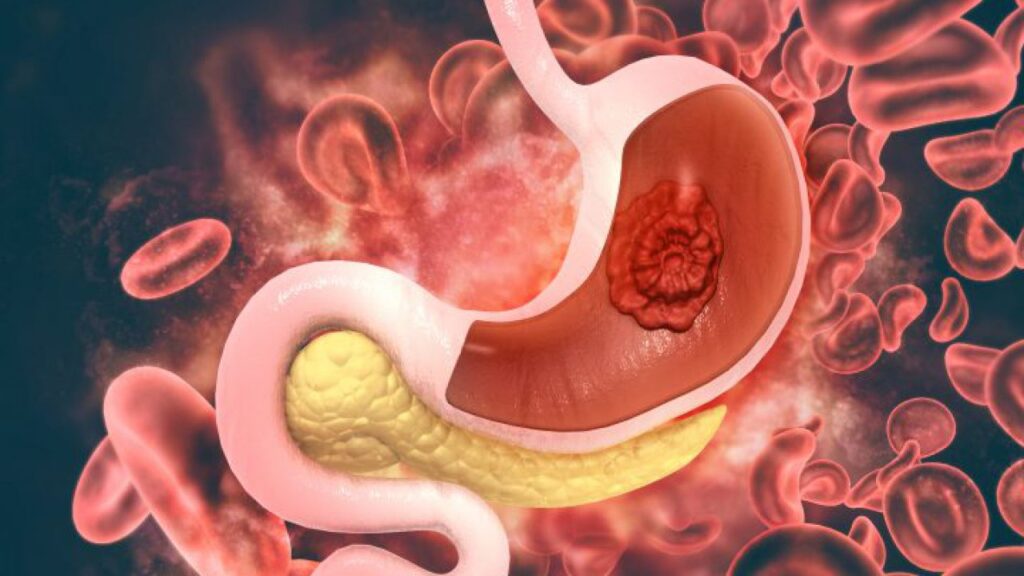
Stomach cancer is the third leading cause of cancer-related death in the world, claiming over 700,000 lives each year, according to the World Health Organization.
Also called gastric cancer, stomach cancer refers to abnormal growth of cells in the stomach lining that initially cause abdominal pain, heartburn, loss of appetite and nausea.
Risk factors for this particular type of cancer include lymphoma (blood cancer), H. pylori bacterial infection, tumors in the digestive system, and stomach polyps.
Your diet also plays a crucial role in this matter.
Eating too much salty or processed foods, eating too much meat, drinking alcohol excessively, and not cooking food properly can make you more prone to stomach cancer.
A good way to prevent this type of cancer is by eating healthy foods such as peanuts.
That’s because peanuts contain resveratrol, which according to scientific research, can inhibit growth and spread of cancerous tumors in the stomach [19].
Key Takeaways:
- The risk of stomach cancer can increase with improper diet such as excessive consumption of salty foods, processed food products, and alcohol.
- Prevent stomach cancer with peanuts that are rich in resveratrol, an antioxidant that can inhibit tumor growth in the stomach lining.
RELATED: 10 Proven Home Remedies for Heartburn and Acid Reflux (Infographics)
10. Peanuts May Alleviate Depression
Contrary to popular belief, depression is not merely an episode of sadness.
It is actually a series of chronic feelings of emptiness, lifelessness and loss of interest in things or activities that one used to enjoy [20, 21].
If not given immediate attention, depression can lead to suicide.
If you suspect that you or someone you know suffer from depression, it’s imperative to consult a psychiatrist for proper treatment.
Also, it helps to snack on foods that are known to have antidepressive effects.
Certain foods have been found to alleviate the symptoms that come with this common mood disorder, and one of these is peanuts.
Peanuts contain tryptophan which is said to trigger the release of serotonin, which in turn can help combat depression [22, 23].
Key Takeaways:
- Depression is more than a feeling of sadness, it can lead to negative thoughts and suicidal tendencies.
- Consulting a psychiatrist for proper treatment is a must.
- It also helps to eat foods that have antidepressive properties such as peanuts.
RELATED: How to Get Rid of Depression: 11 Natural Cures and More
11. Peanuts Can Help Keep Skin Free of Wrinkles and Other Signs of Aging
Look younger and fresher when you make it a habit to munch on a handful of peanuts.
One way peanuts help keep the skin young is by flushing out toxins that cause skin dullness and premature aging [24].
Its magnesium content, meanwhile, keeps the blood vessels healthy as well as promotes proper blood flow to the skin to make it appear more youthful [25].
It’s also important to note that peanuts are rich in vitamin E, which protects the skin cells from the UV-induced damage [26].
Exposure to UV rays has been known to speed up aging of the skin, particularly the formation of age spots, fine lines and wrinkles.
Key Takeaways:
- A great way to have young-looking skin is to eat peanuts, which are rich in vitamin E and other antioxidants.
- Vitamin E protects the skin cells from the damage caused by exposure to UV radiation.
- Antioxidants, meanwhile, reduce the free radical damage in the cells, which cause premature skin aging.
RELATED: 11 Ways to Get Rid of Wrinkles Using Home Remedies
Key Nutrient Facts
Peanuts are loaded with energy, containing 567 calories for every 100 grams. They also have a plethora of vitamins, minerals, antioxidants and essential fatty acids that support optimal health.
They’re an excellent source of dietary protein, monounsaturated fats, vitamin B complex, vitamin E, potassium, calcium, copper, manganese, iron, and polyphenol antioxidants such as resveratrol.
The list below contains nutritional information based on a 100-gram serving of peanuts. The daily percentage values are for a 2,000 calorie diet.
- Calories 567
- Fat 49 mg
- Cholesterol 0
- Sodium 18 mg
- Potassium 705 mg
- Carbs 16 g
- Protein 26 g
- Dietary Fiber 9g
- Sugar 4g
- Calcium 9%
- Vitamin B6 15%
- Iron 25%
- Magnesium 42%
Disadvantages and Side Effects of Peanuts
Eating too many peanuts can be harmful for the body in several ways. Peanuts contain healthy unsaturated fat and high calories (about 170 calories in 1 ounce roasted peanuts) but an over consumption may lead to weight gain, heart disease, etc. Eating salted peanuts can increase the sodium level in the body which may increase the risk of stroke, high pressure, cardiovascular diseases, etc. [30]
If you are eating peanuts in large amount and not maintaining a balanced diet, the phytate or phosphorus in peanuts can disrupt the absorption of essential minerals iron, zinc, etc. in the body.
If the peanuts are not stored properly they can be contaminated with Aspergillus flavus and produce a toxic element called aflatoxin. Aflatoxin poisoning causes major threat to liver health. [29]
Peanut allergy is one of the most common side effects that you may face. Peanuts are severe food allergens and may be potentially life threatening. Approximately 1% Americans suffer from peanuts allergy. [27]
Some of the common symptoms of peanuts allergy include: [28]
- Skin irritations, itchiness, hives, and swelling
- Runny nose
- Nausea, vomiting, stomach cramps, and diarrhea
- Wheezing and tightening of throat
- Difficulty in breathing
You should avoid eating peanuts and peanuts product at all cost if you have allergic reaction to it.
Bottom Line
People should know more about the remarkable health benefits that peanuts can offer.
Peanuts are an excellent source of essential nutrients for the body.
They can help reduce the risk of cancers and heart disease, as well as improve one’s overall health.
Apart from enhancing the physical health, it can also ward off mental problems like Alzheimer’s disease and depression.
READ NEXT: 19 Health Benefits of Pomegranate (Backed by Evidence)
